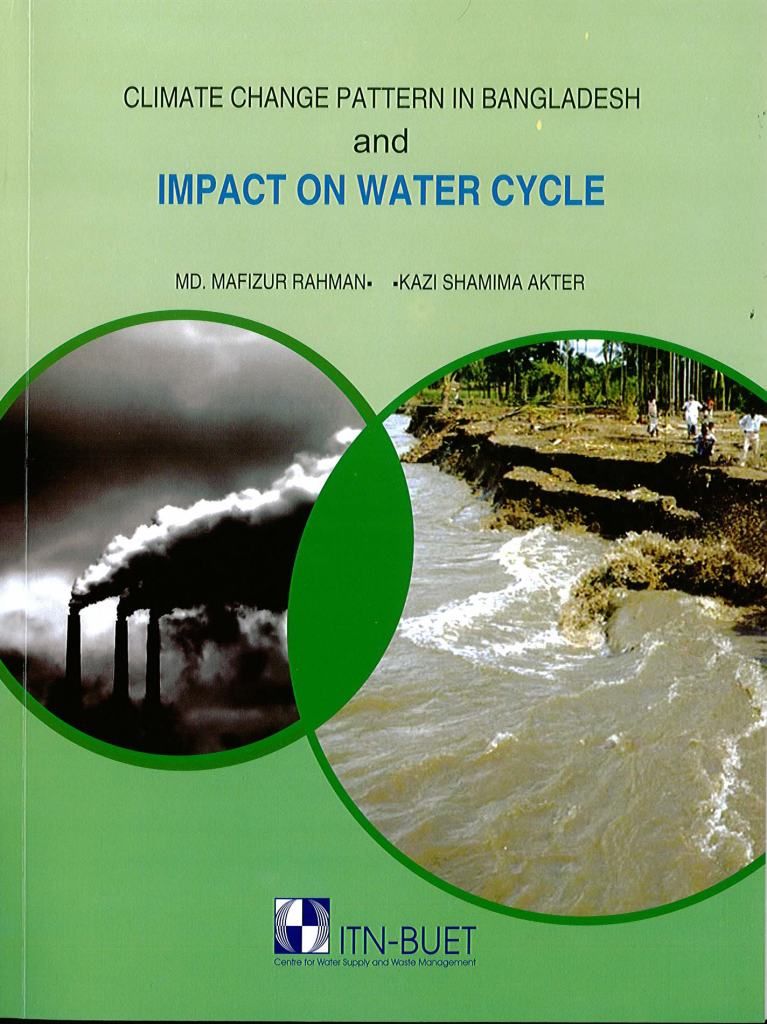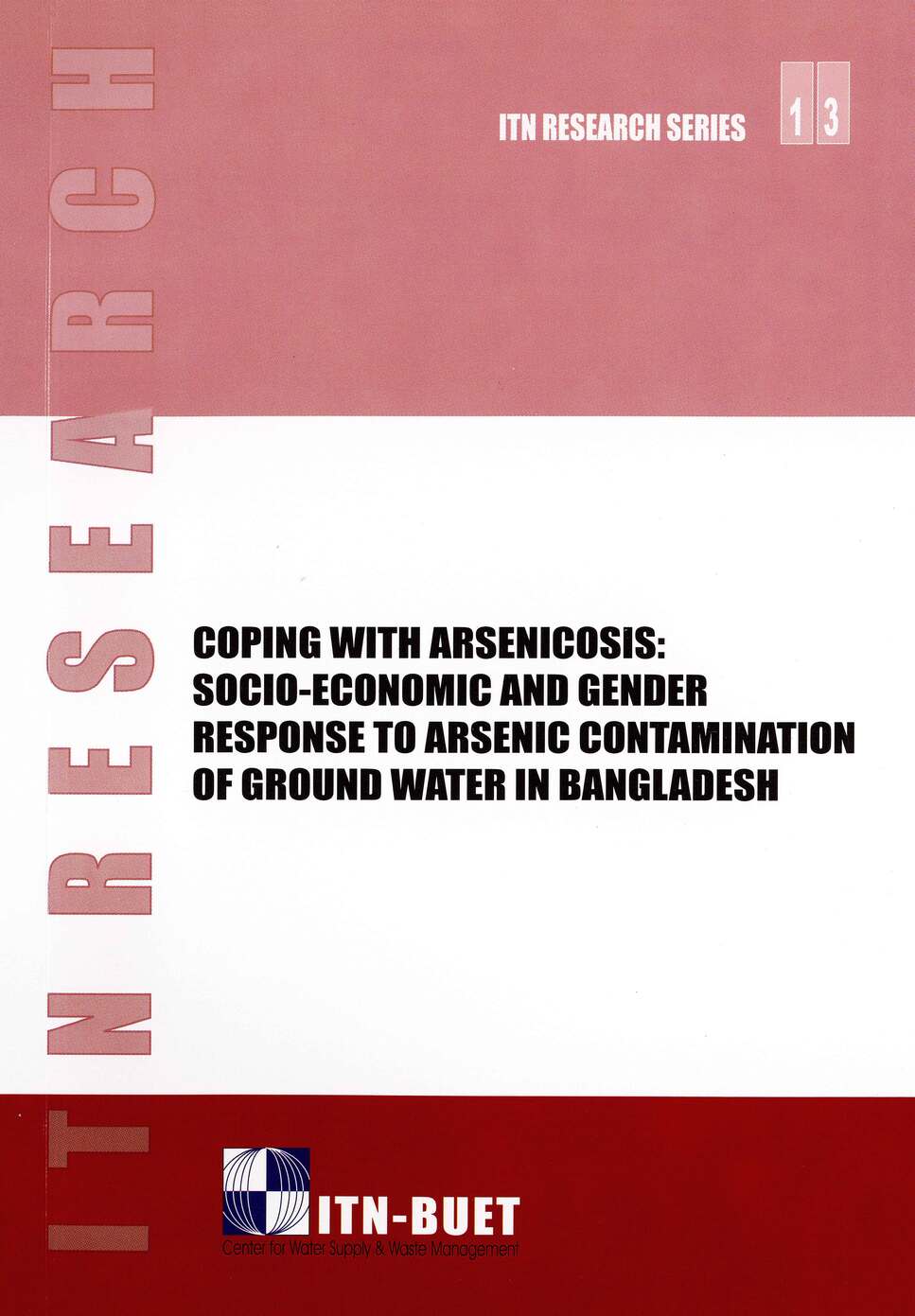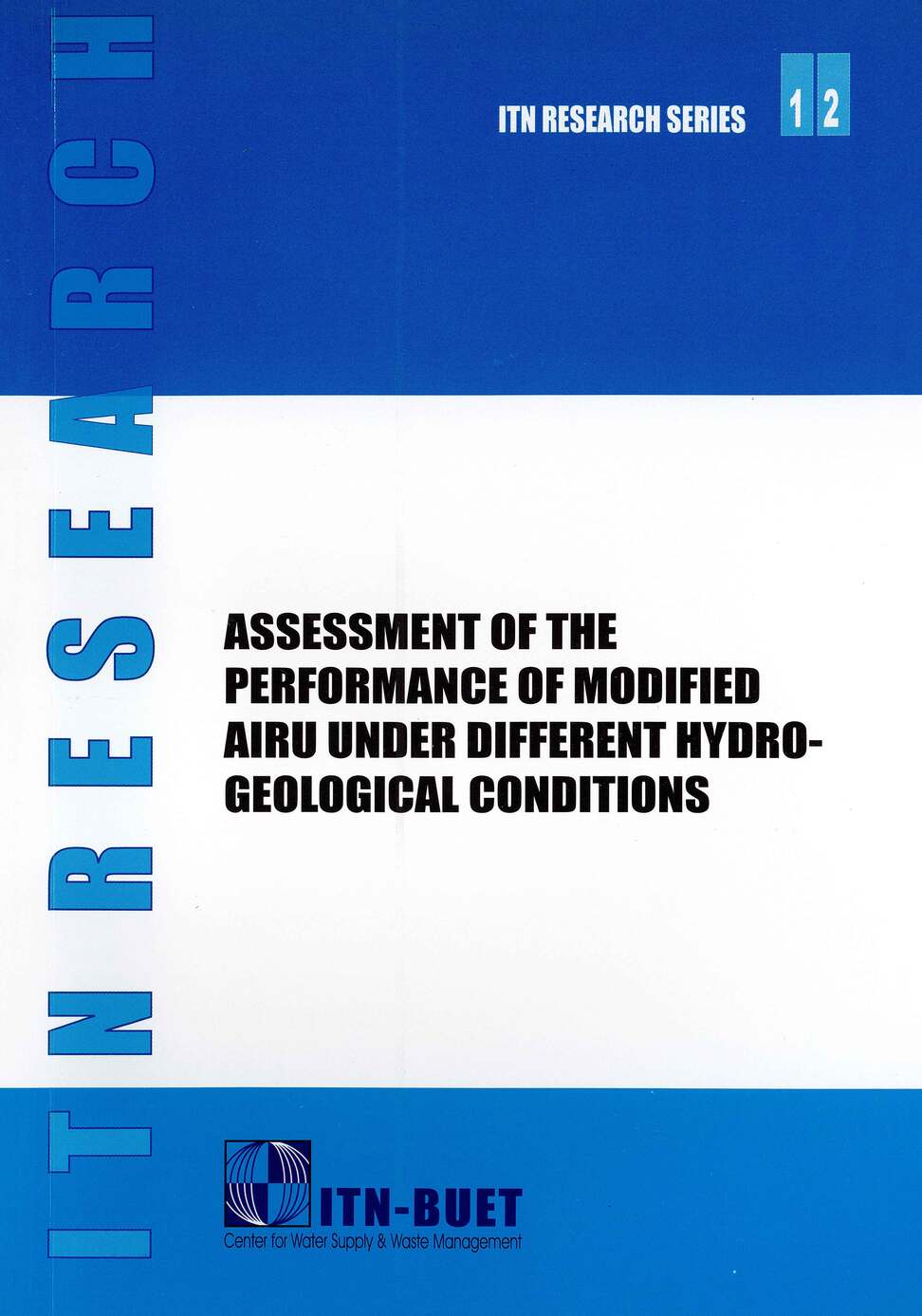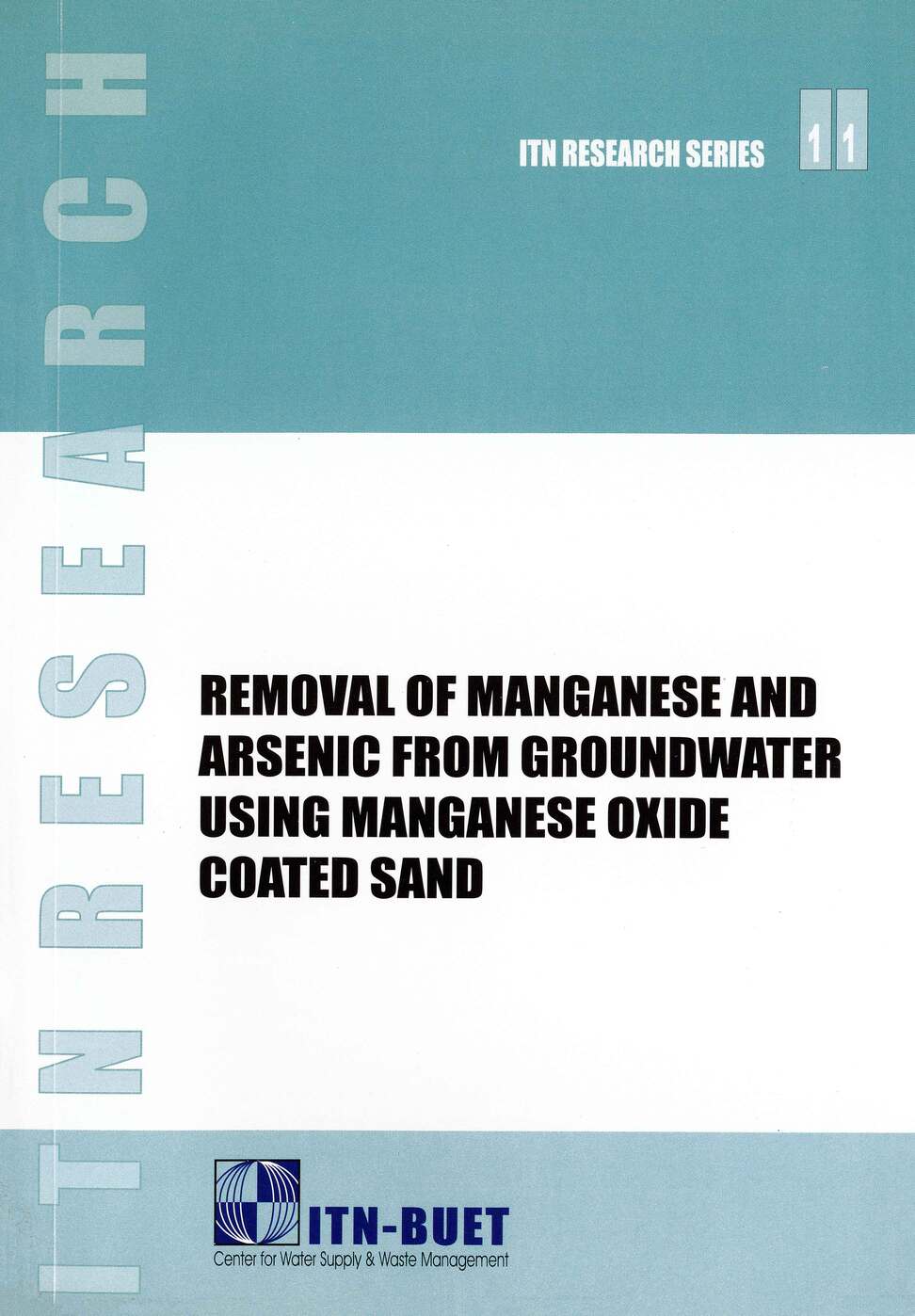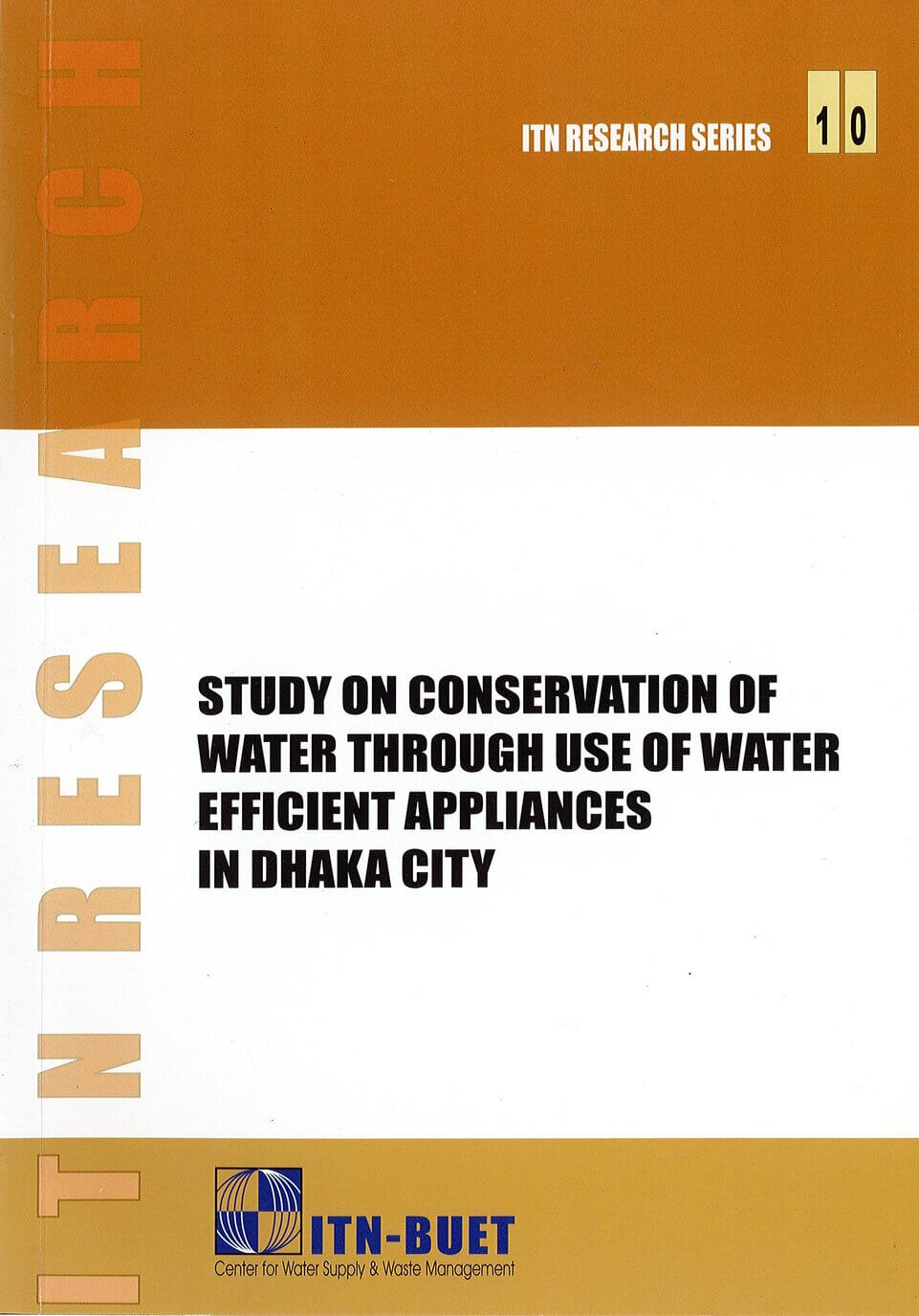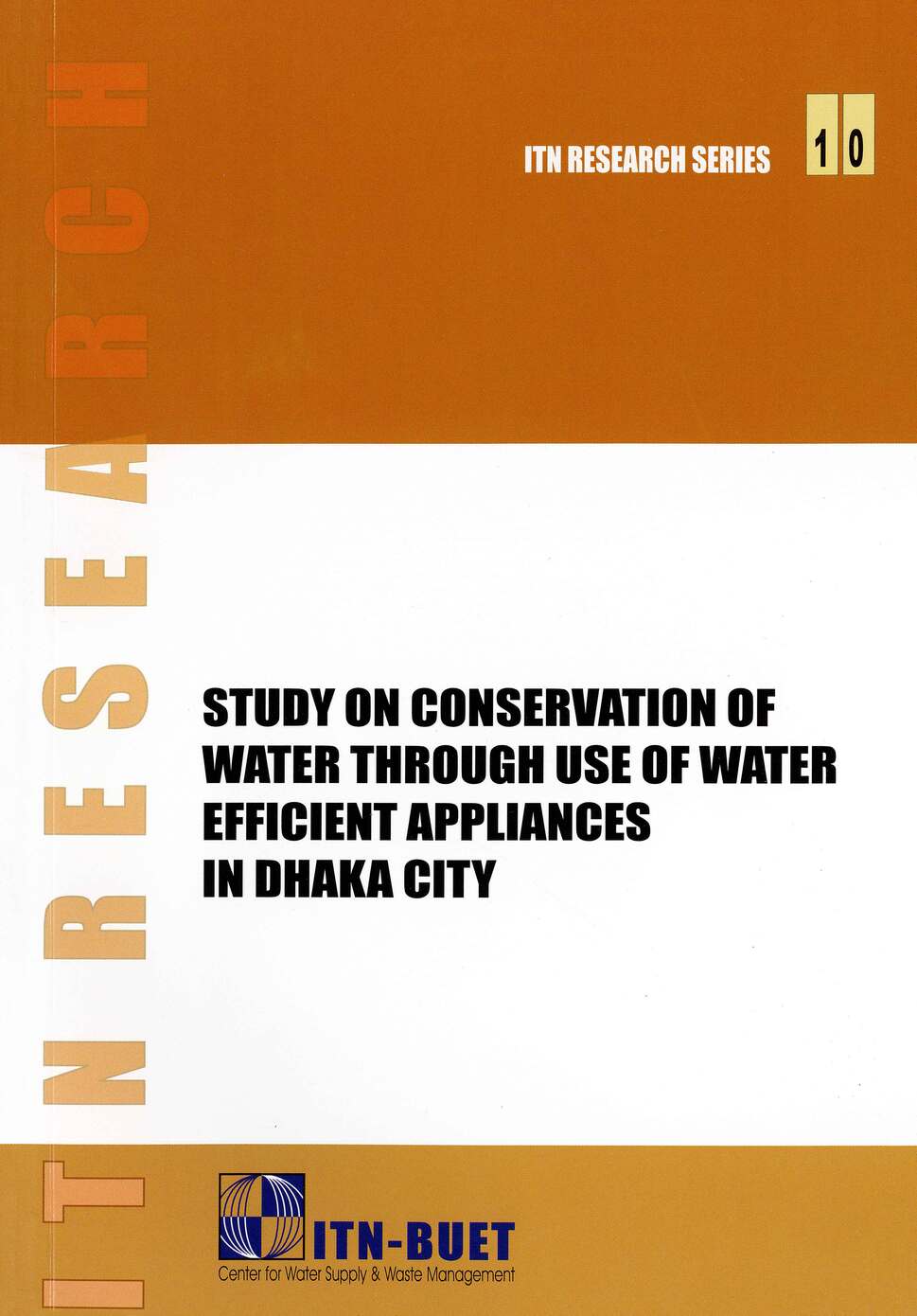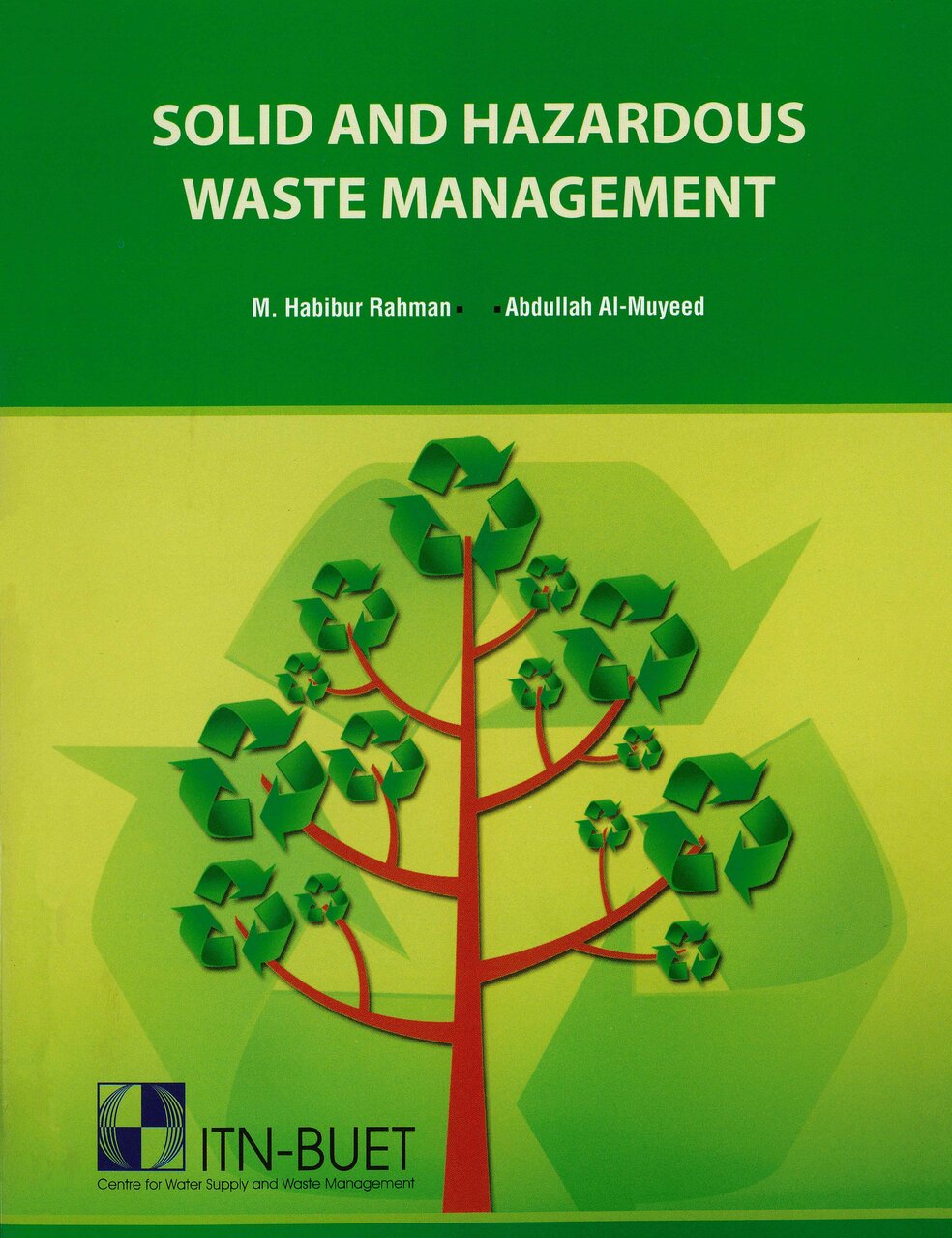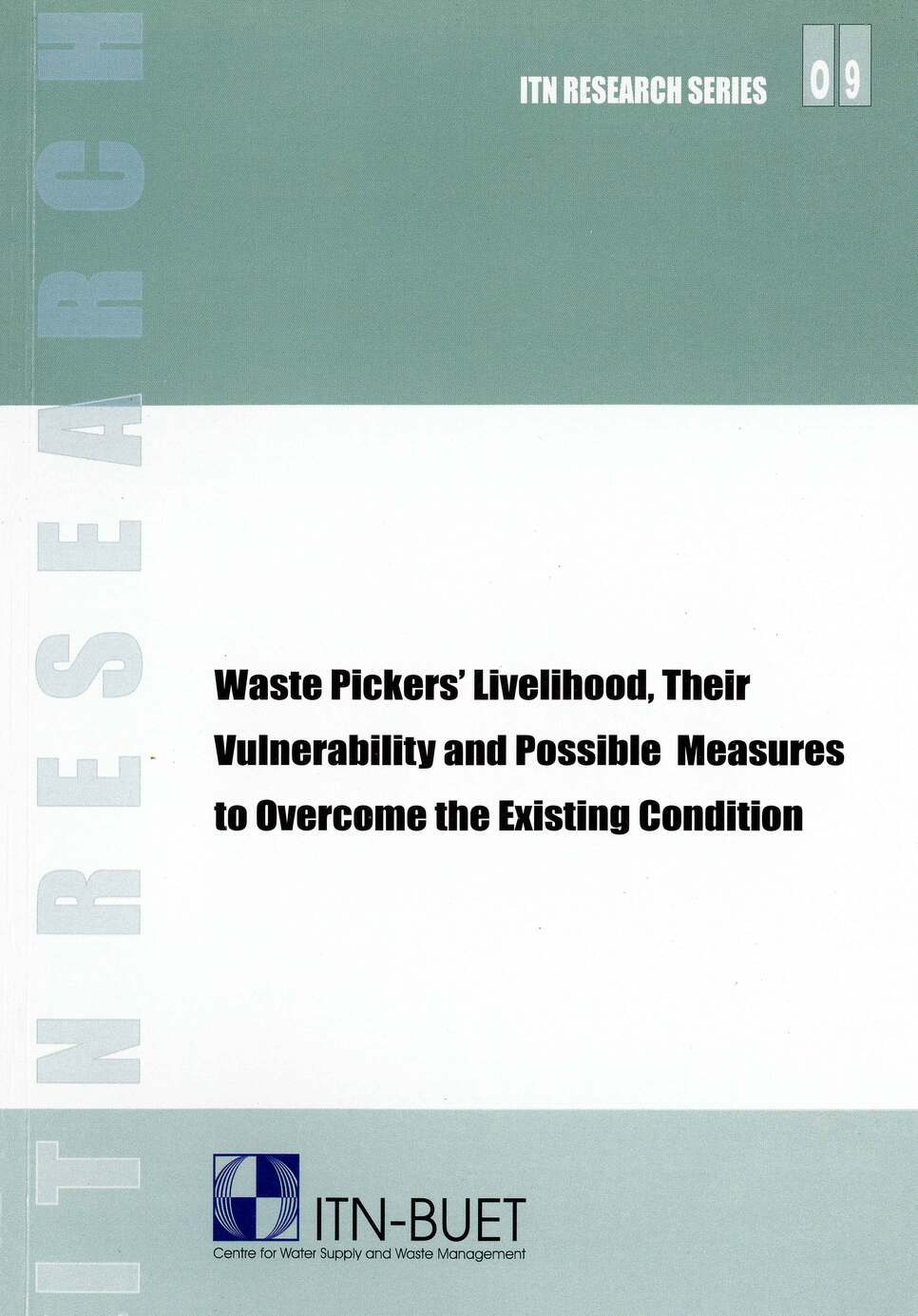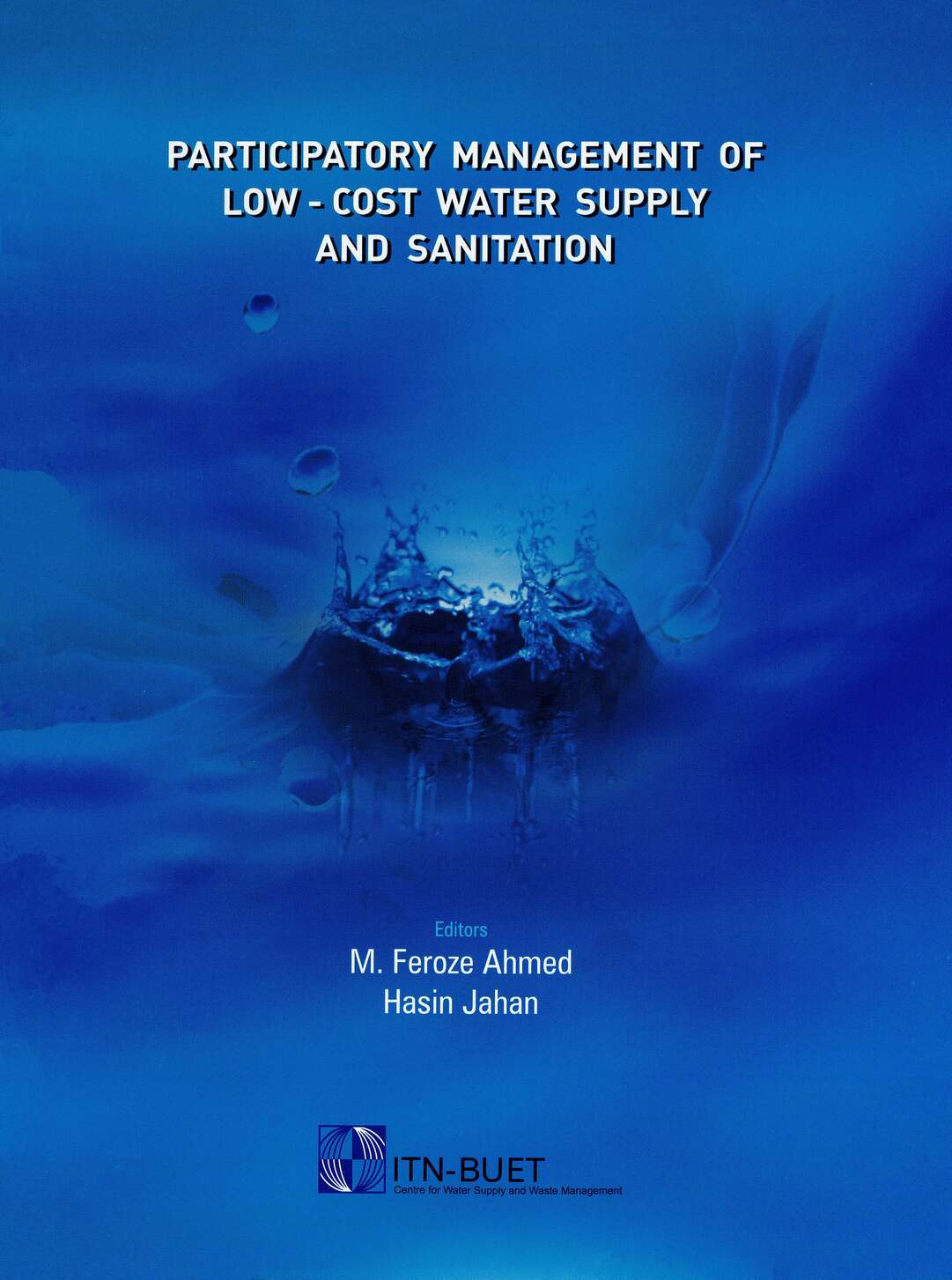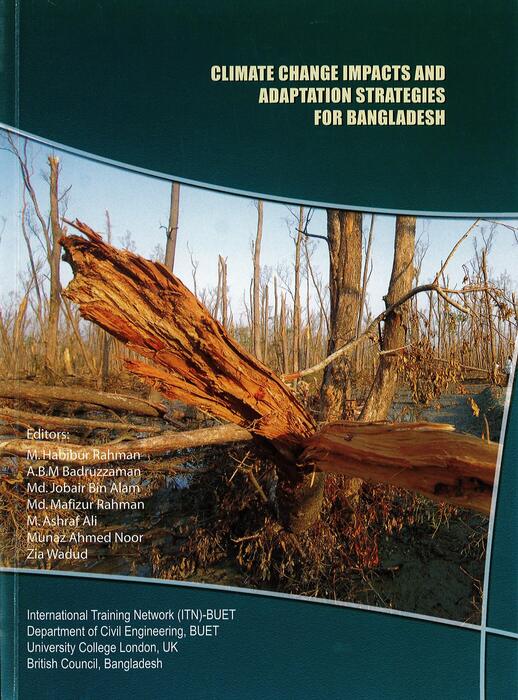Publications
Find journal articles, external publications, and ITN-BUET’s own portfolio of reports and briefs.
Climate Change Pattern in Bangladesh and Impact on Water Cycle
Bangladesh happens to be in a geographic zone where the impact of climate change is severe. Population density in this part of the world is very dense. Thus impact of climate change – even if it happens for a small zone, impacts a huge number of populations. Adaptation to this changing climate is a national issue.
Author(s)/Editor(s): Kazi Shamima Akter, Md. Mafizur Rahman
December, 2011
Coping with Arsenicosis: Socio-economic and Gender Response to Arsenic Contamination of Ground Water in Bangladesh
Arsenic contamination in Bangladesh is regarded as one of the largest mass poisoning in the world. Many research works are undertaken to identify the cause of such contamination and find […]
Researcher(s): Mahbuba Nasreen
June, 2011
Assessment of the Performance of Modified AIRU under Different Hydro-Geological Conditions
ITN-BUET has conducted a number of researches on arsenic issue. In continuation to that, a research on “Assessment of the Performance of Modified AIRU under Different Hydro-Geological Conditions” was conducted […]
Researcher(s): Farooque Ahmed
June, 2011
Removal of Manganese and Arsenic from Groundwater Using Manganese Oxide Coated Sand
Groundwater is a significant source for drinking water in our country. This water is contaminated with various minerals of which arsenic and manganese can be specially mentioned. ITN-BUET has conducted […]
June, 2011
Study on Conservation of Water through the Use of Water-Efficient Appliances in Dhaka City
The shortage of safe drinking water remains a pressing issue for the citizens of Dhaka. While the concerned agencies are making continuous efforts to increase the water supply, it’s imperative to consider demand-side management as well to address this challenge. In this context, the research on ‘Conservation of Water through the Use of Water-Efficient Appliances in Dhaka City’ holds significant importance.
Researcher(s): Md. Mafizur Rahman
June, 2011
Study on Conservation of Water through Use of Water Efficient Appliances in Dhaka City
Shortage of safe drinking water is one of the problems being faced by the citizens of Dhaka. While the concerned agencies are continuously striving for increasing the supply, a demand […]
June, 2011
Solid and Hazardous Waste Management
The book has been developed for students studying environmental engineering focused on solid and hazardous waste treatment and management and their teachers at technical institutions in Bangladesh.
Author(s)/Editor(s): Abdullah Al-Muyeed, Habibur Rahman
First Edition: June, 2010
Waste Pickers’ Livelihood, Their Vulnerability and Possible Measures to Overcome the Existing Condition
ITN-BUET conducted a research on the social aspect of solid waste management titled ‘Waste Pickers’ Livelihoods, their Vulnerability and Possible Measures to Overcome the Existing Condition’ during 2008-09, an area which received very little attention previously for research within the domain of solid waste management. The publication is the outcome of this study.
Researcher(s): Monir Alam Chowdhury, Shafiul Azam Ahmed
First Edition: May, 2010
Participatory Management of Low-cost Water Supply and Sanitation
The document is actually a manual of training programme on the same title given which was intended to be helpful to bring about changes in terms of knowledge, skill and attitude among the officials of DPHE to improve …
Author(s)/Editor(s): Feroze Ahmed, Hasin Jahan
Fourth Edition: May, 2010
Climate Change Impacts and Adaptation Strategies for Bangladesh
This book focuses on the identification of the possible implication of climate change on environment and economic development of Bangladesh and devising sustainable development framework.
Author(s)/Editor(s): A.B.M. Badruzzaman, Habibur Rahman, Jobair Bin Alam, Md. Ashraf Ali, Md. Mafizur Rahman
2009


